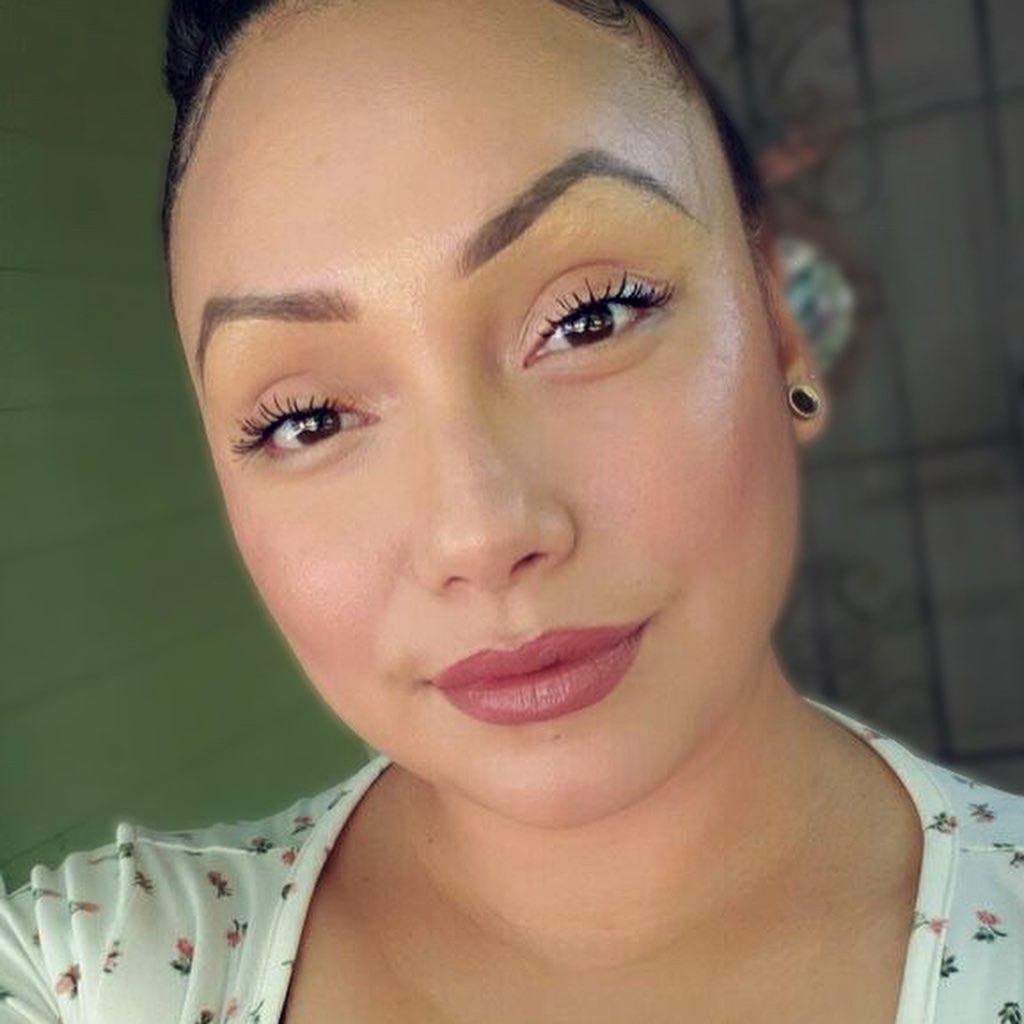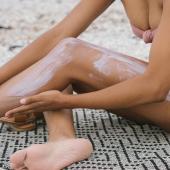10 Reasons to Give Cream Makeup Products a Go
 Back before quarantine hit, I had dinner with an old friend — Sofie — who was visiting from out of town. Sofie is a nurse and I'm so proud of her and grateful to her for everything she's doing for her community right now. And, when she's not outfitted in PPE, she often has on gorgeously creative, colorful makeup. In short, she's a Makeup Queen.
Back before quarantine hit, I had dinner with an old friend — Sofie — who was visiting from out of town. Sofie is a nurse and I'm so proud of her and grateful to her for everything she's doing for her community right now. And, when she's not outfitted in PPE, she often has on gorgeously creative, colorful makeup. In short, she's a Makeup Queen.
Because of her MQ status, instead of splitting the check or sending her money for the meal, we agreed that I'd send her Naked Truth Beauty product to try.
It turns out that this was her first foray into cream products because she has oily skin and has always chosen powders as a result, but guess what? She loved it.
So, in her honor, here are 10 reasons to give cream products a shot. (I'm talking multi-purpose sticks, cream blush/bronzer/eyeshadow, concealers… you name it.)
1. They (should) melt into skin for a natural, non-greasy finish.
According to her fiance, Sofie's cream-based makeup looks "seamless" and "lays smooth." We interpreted this to mean it looks like skin, which is one of the highest compliments makeup can get. His product praise was in reference to blush and highlighter.
2. Cream products support the health and appearance of skin with naturally plumping, nourishing ingredients.
Generally speaking, powders absorb and reduce moisture, while creams impart it. Well-hydrated skin is skin at its best, and pretty much the best way to look well-rested, healthy, and youthful. (This is an argument for embracing and supporting the skin you're in, not against aging.) In fact, pretty much every woman over 40 I worked with during my years selling NTB products was shocked and delighted by how good they felt in cream makeup, and how many unsolicited compliments they received when they wore it. I'm not making this up. It's all about that maybe-I-just-did-25-jumping-jacks healthy glow. Many brands use a variety of oils, butters and extracts to deliver skin-nourishment while you wear. For example, Shea butter (the first ingredient in NTB) stimulates collagen production.
3. Creams don't settle into fine lines the way powders can.
Similar to point #2, powders add dryness to skin, which can accentuate fine lines. By contrast, creams add moisture to plump and reduce wrinkles, and also disperse well across the top of the skin so as not to settle into wrinkles.
4. Creams impart a dewy finish for a healthy glow without looking greasy, sparkly, or powdery.
Think about the healthiest, most beautiful skin you've ever seen. Was it matte? Probably not. There is something about that lit-from-within radiance that can't be beat. If you're feeling less-than-glowy today, cream is the best way to fake it. There are many, many cream highlighters out there, so you can choose the one that works best for you.
5. It's the ultimate no-makeup-makeup look.
Because cream formulas melt into the skin, they give a barely-there finish that's super natural looking and universally flattering.
6. Cream formulas are as "non-toxic" as can be when it comes to mineral pigments.
Many formulators (yours truly included) use mineral pigments in lieu of FD&C color additives (I touch on some of the reasons for that here) because they're "healthier." However, mineral pigments can be harmful to the respiratory system with routine inhalation, which can occur with loose powders. By suspending these loose particles in cream, you've eliminated the only exposure route by which a mineral pigment could possibly be bad for you. Pretty cool, yeah?
7. They're multi-purpose (or can be).
Cream formulas are the easiest to use across features, making them a great choice for anyone who wants to buy less, cut down on the number of products in their makeup bag, or embrace minimalism, generally.
8. Cream products can be friends with oily skin.
Don't put creams in your T-zone, experiment with how YOU like it, and know that cream formulas are good for skin of all types. Oil likes oil. Give it a try!
9. Cream products can have simple, healthy formulas.
Practically by definition, cream products should be oil-based and water-free (oil and water don't mix, yadda yadda. It's possible to have both with an emulsifier, but that's more lotion than cream). What this means is that cream products often do not need broad spectrum, powerful preservatives because they're not a natural breeding ground for bacteria like water or juices are (more on aloe and ingredient disclosure here). This isn't to say that cream formulas don't often include antimicrobial agents for general health and safety, but you likely won't see some of the harshest or most villainized ingredients like parabens or the newest hot preservative that's replaced parabens, phenoxyethanol (a totally different conversation).
10. Simple cream formulas can be the best option for sensitive skin.
Similar to the previous point, because cream formulas can have sparse ingredients (e.g. Oil(s) and butter(s), wax(es), an extract or two, and pigment), they can be the best option for folks with sensitive skin or allergies. This is because creams tend to be more gentle (often because of lack of preservatives), and because it's easier to pinpoint which thing in a given product is giving you issues merely because there are fewer ingredients.
Do you use cream products? Which are you favorites? What challenges do you have? Send me a message!




